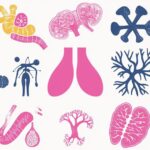After cancer treatment, many survivors face the challenge of weight gain due to factors like chemotherapy, hormonal changes, and decreased physical activity. Understanding these causes is crucial for developing effective weight management strategies that prevent undesired weight gain.
The impact of weight gain extends beyond physical appearance, increasing the risk of obesity-related conditions such as heart disease and type 2 diabetes, and affecting overall quality of life and cancer recurrence risk. Thus, maintaining a healthy weight becomes essential for cancer survivors.
Preventing weight gain involves adopting tailored dietary and lifestyle strategies, including:
- Consuming nutrient-dense foods
- Managing portion sizes
- Incorporating regular physical activity
Additionally, support from dietitians and personalized plans can aid in achieving and maintaining a healthy weight.
Engaging in healthy eating habits, regular exercise, and seeking community support enhances recovery and well-being, empowering survivors to manage weight effectively post-treatment.
Key Takeaways:
Understanding Weight Gain After Cancer Treatment

Weight gain after cancer treatment often results from chemotherapy, hormonal changes, and reduced physical activity.
Understanding these factors, including the metabolic changes due to chemotherapy, helps in creating effective weight management plans for cancer survivors.
Dietary adjustments and regular exercise can help prevent unwanted weight gain post-treatment.
Causes and Contributing Factors
Weight gain in cancer patients is caused by chemotherapy effects, dietary changes, hormonal shifts, and fluid retention.
Chemotherapy effects can alter metabolism, leading to changes in calorie burning and appetite changes. Dietary changes may include increased food cravings for high-calorie comfort foods, while nausea affects balanced eating.
Hormonal changes, fluid retention, and the use of corticosteroids can also contribute to weight gain during cancer treatment.
Impact of Weight Gain on Cancer Survivors
Weight gain in cancer survivors increases the risk of obesity-related conditions such as heart disease and type 2 diabetes.
Weight gain also impacts cancer recurrence, emotional well-being, and overall quality of life.
Maintaining a healthy weight is crucial for reducing health risks in cancer survivors.
Health Risks and Quality of Life
Cancer survivors who experience weight gain face increased risks of obesity, heart disease, and type 2 diabetes.
These conditions limit treatment options and prolong the healing process for cancer survivors.
Weight gain can also lead to depression and anxiety, complicating lifestyle changes needed for recovery and affecting mental health.
Support systems advocating balanced diets and regular physical activity help manage these risks.
Addressing physical and emotional health improves overall well-being and enhances recovery for cancer survivors.
Preventing Weight Gain During and After Treatment

Preventing weight gain during and after cancer treatment involves adopting specific dietary and lifestyle strategies tailored for cancer patients.
- Strategies include consuming nutrient-dense foods, managing portion sizes, and incorporating regular physical activity.
- Meal planning should focus on balanced meals with protein intake, healthy fats, and a variety of vegetables to support overall health and dietary habits.
- Consulting a dietitian can help create a personalized plan suitable for individual needs, treatment side effects, and dietary restrictions.
Healthy Eating Habits and Physical Activity
Healthy eating habits and physical activity are essential for cancer patients to prevent weight gain during and after treatment.
Adopting a balanced diet rich in whole foods, such as nutrient-dense fruits and vegetables, supports nutritional intake and strengthens the immune system.
Establishing a meal-planning routine with nutrient-dense options helps maintain a healthy diet.
Tracking calorie intake with a food diary can identify eating patterns and guide dietary patterns.
Regular exercise like walking, yoga, or strength training aids in maintaining a healthy weight, promoting weight loss, and enhancing overall well-being during recovery.
Managing Weight Gain After Cancer Treatment
Managing weight gain after cancer treatment involves adopting a balanced diet, engaging in regular physical activity, and seeking support from healthcare professionals.
Balanced diet:
- Emphasize whole foods and consider incorporating a plant-based diet
- Fruits and vegetables
- Lean proteins
- Whole grains to manage weight.
Regular physical activity:
- Incorporate both aerobic and strength-training exercises
- Maintain a healthy weight.
Healthcare support:
- Collaborate with dietitians and nutrition services
- Physical therapists for personalized weight management plans.
These strategies help cancer survivors enhance overall well-being and prevent future health complications.
Strategies for Losing Weight and Maintaining a Healthy Weight
Strategies for losing weight and maintaining a healthy weight include keeping a food diary, monitoring portion sizes, and following exercise recommendations.
Effective weight management involves focusing on a balanced diet, regular physical activities like walking or swimming, exercise recommendations, and mindful eating to control calorie intake.
Support from nutrition professionals, mental health services, and emotional support systems can enhance weight loss efforts and overall well-being.
Support and Resources for Cancer Survivors

Support and resources for cancer survivors include community groups, professional nutrition counseling, and mental health services.
These resources help cancer survivors manage weight by offering guidance on healthy eating, physical activity, nutrition tips, and emotional support post-treatment.
Community and Professional Support for Managing Weight After Treatment
Community and professional support help cancer survivors manage weight after treatment through access to nutrition services and emotional support.
Support systems include:
- Personalized counseling for meal plans, lifestyle strategies, and dietary advice
- Support groups for shared experiences
- Nutrition education for healthy habits and exercise, including calorie tracking and hydration strategies
Engagement in a supportive community improves emotional well-being and reinforces holistic health approaches.
Frequently Asked Questions
How can I avoid weight gain after cancer treatment?
One way to avoid weight gain after cancer treatment is to maintain a healthy and balanced diet, incorporating plenty of fruits, vegetables, and lean proteins, following dietary guidelines like MyPlate. It is also important to stay active and engage in regular exercise.
Are there any specific foods I should avoid to prevent weight gain after cancer treatment?

While there are no specific foods to avoid, it is recommended to limit your intake of processed and high-fat foods, as well as sugary drinks and snacks. These can contribute to weight gain and may also increase your risk of cancer recurrence.
Can medications prescribed during cancer treatment cause weight gain?
Some medications, such as steroids and hormone therapy, may cause weight gain as a side effect. Talk to your doctor about any concerns you have regarding weight gain and potential side effects of your medications.
How important is it to maintain a healthy weight after cancer treatment?
Maintaining a healthy weight after cancer treatment is important for overall health conditions, well-being, and managing obesity prevalence. It can also help reduce the risk of cancer recurrence and other health complications.
What are some tips for staying physically active after cancer treatment?
It is important to consult with your doctor before starting any physical activity after cancer treatment, as part of patient care. Some tips for staying active include finding activities you enjoy, starting slow and gradually increasing intensity, and listening to your body’s needs.
Are there any support groups or resources available for maintaining a healthy weight after cancer treatment?
Many cancer centers, such as Memorial Sloan Kettering and Dana-Farber Cancer Institute, offer support groups and resources for cancer survivors looking to maintain a healthy weight. Additionally, you can speak with a registered dietitian or nutritionist for personalized guidance and advice.





